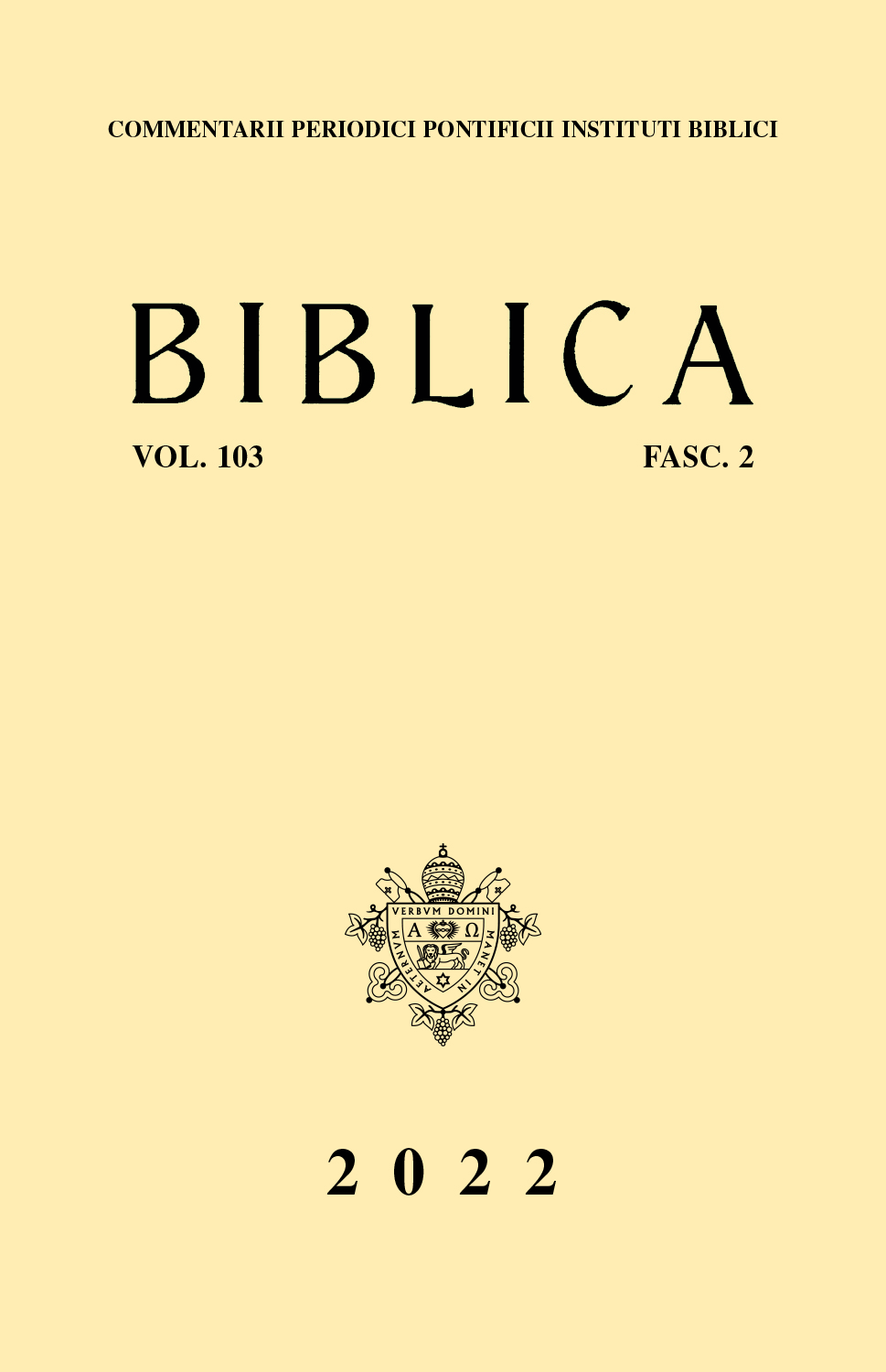 previous article in this issue previous article in this issue | next article in this issue  |

Preview first page |
Document Details : Title: Two Types of Argumentation Involving Rhetorical Questions in Biblical Hebrew Dialogue Author(s): MOSHAVI, Adina Journal: Biblica Volume: 90 Issue: 1 Date: 2009 Pages: 32-46 DOI: 10.2143/BIB.90.1.3188890 Abstract : Rhetorical questions (henceforth RQs) often express a premise in a logical argument. Although the use of RQs in arguments has been widely noted, the modes of reasoning underlying the arguments have not received sufficient attention. The present study investigates argumentative RQs in the prose dialogue in Genesis through Kings in the light of pragmatic argumentation theory. Two logical forms, modus tollens and denying the antecedent, are identified as accounting for the majority of arguments expressed by RQs. The first type is generally intended to deductively establish its conclusion, while the second, formally invalid form is used presumptively to challenge the addressee to justify his position. There is also a presumptive variety of the modus tollens argument, which is based on a subjective premise. Both modus tollens and denying the antecedent have similar linguistic representations and can be effective means of refusing directives. |
|


